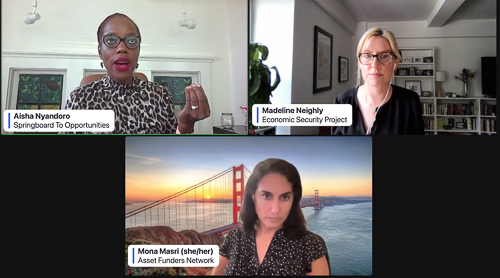
by Peter Knight | May 20, 2022 | Events, News
This primer was developed by the Asset Funders Network (AFN) to educate foundations, individual donors, and other funders about the ways in which guaranteed income and related cash-based policies not only strengthen low and moderate income communities and communities of color, but also build a healthy and more resilient economy for us all.
Guaranteed Income pilots have been increasing in number rapidly over the past few years. In early 2022, there were more than 90 demonstrations planned or in progress in the United States. The majority of these have relied primarily on philanthropic funding, although there is an increase in public funding, primarily through use of American Rescue Plan Act funds.
Most pilots are intended to help build support for a federal basic income, but are usually targeted on specific groups due to limitations in funding and support. Click here to access a webpage with a short presentation and links to a larger primer and the recording of a webinar held on 18 May 2022.
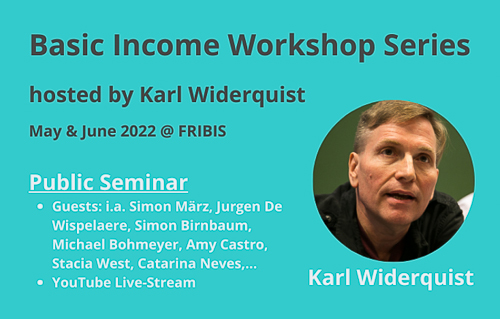
by Peter Knight | May 16, 2022 | Events, News
Karl Widerquist is hosting a workshop series that will feature lectures by international guest speakers from the field of basic income research. Detailed Information and the Live-Stream-Link you can find below.
The series began on May 10 2022 with talks by Simon März, Jurgen De Wispelaere and Simon Birnbaum.
The next workshop will be held May 31 at at 16:00-18:00 German time (UTC+2) with talks by Paul Niehaus, Jurgen De Wispelaere, and Joe Crisp.
For details on the series, including dates, times, speakers, and YouTube stream links, click here.
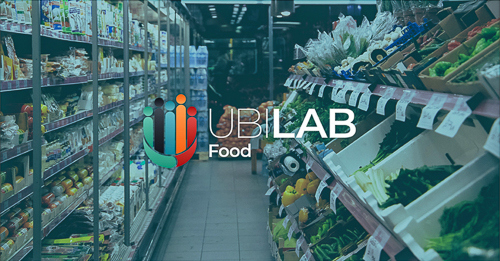
by Peter Knight | May 8, 2022 | Events, News
You are invited to join the launch of UBI Lab Food, the 40th lab of the UBI Lab Network, a virtual event to be held Thursday 12 May 2022 at 13:00-1400 BST.
The launch event will be an opportunity to engage in a rich discussion about the potential role of a Universal Basic Income in ensuring people’s nutrition security, and shape equitable, sustainable food systems.
The event will start with a panel discussion where each panelist will bring a different perspective to the table.
This will be followed by a presentation of ideas for the Lab, a Q&A, and a discussion among all attendees. The organizers would love to hear your thoughts on what the Lab could mean for progressing the conversation on, and our understanding of, UBI and food.
This event will be chaired by Dan Crossley of the NGO Food Ethics Council, UK
To register click here.
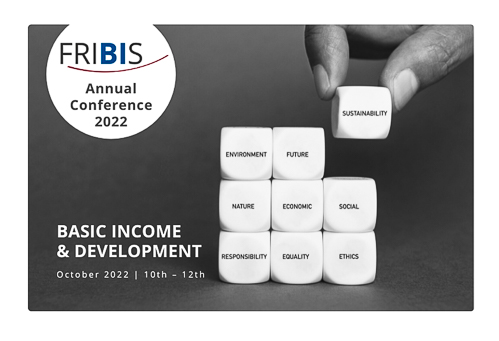
by Peter Knight | May 8, 2022 | Events, News
Basic income has become the subject of a lively and controversial debate in politics, civil society and academia. By questioning the fundamental assumptions of our social interaction, it challenges us to redefine the way we want to live together. This year’s FRIBIS’ annual conference will be taking a closer look at the relationship between basic income and development ideas and the potential they hold for the challenges of both the present and the future.
FRIBIS is particularly – but by no means exclusively – looking forward to contributions that deal with the following topics:
• Ecologically sustainable development: What role can a UBI play in improving people’s economic living conditions while protecting the environment?
• Development cooperation and social justice: Could the function of a basic income be to render development cooperation more efficient, increasing equal opportunities and promoting redistribution from top to bottom?
• Basic income in (post-)conflict regions: What impact could the introduction of a UBI have in regions branded by resource conflicts and power struggles? Can a UBI support societies in their development towards more resilience and social peace?
• Proposals beyond the conference’s focus on development are also welcome.
The deadline for the call for papers, workshops, and student participation is May 31, 2022. Full details are available at the conference website.
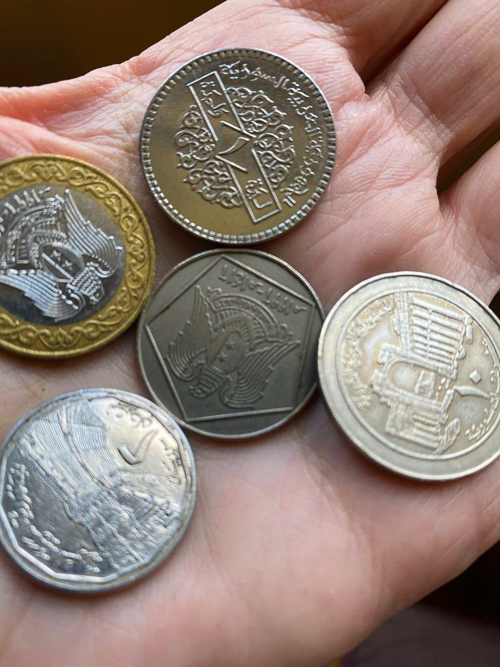
by Peter Knight | Apr 14, 2022 | News
Diana Bashur, BIEN Secretary, is currently at the University of Vienna researching Basic Income as a tool for peace-building with a focus on the Middle East and a particular interest in its potential for social cohesion. She recently published an article, What would a basic income mean for the Arab world?.






